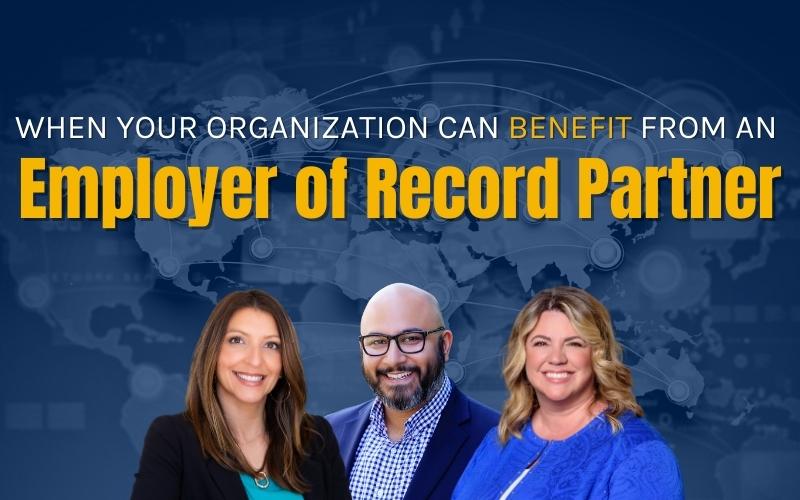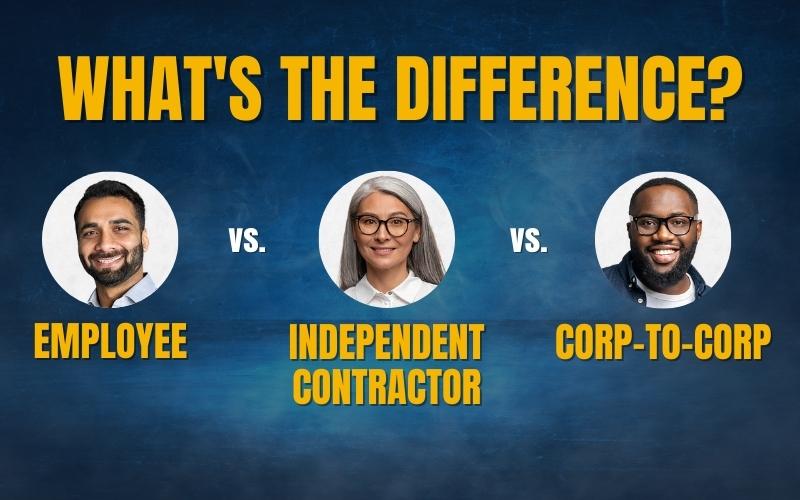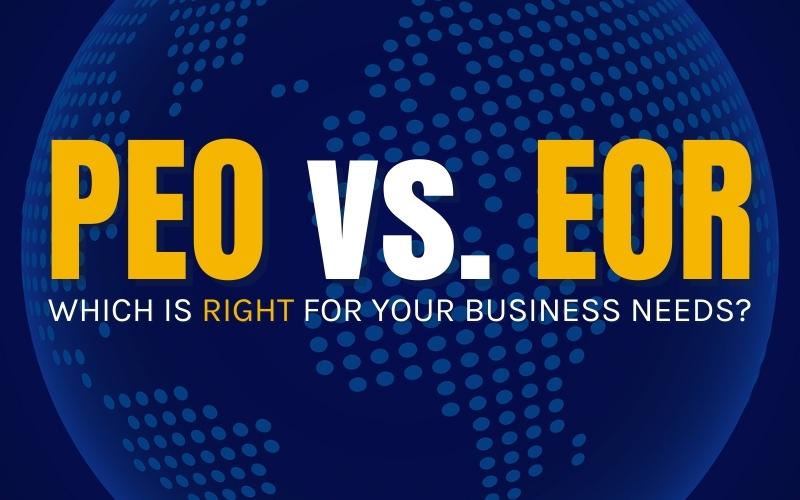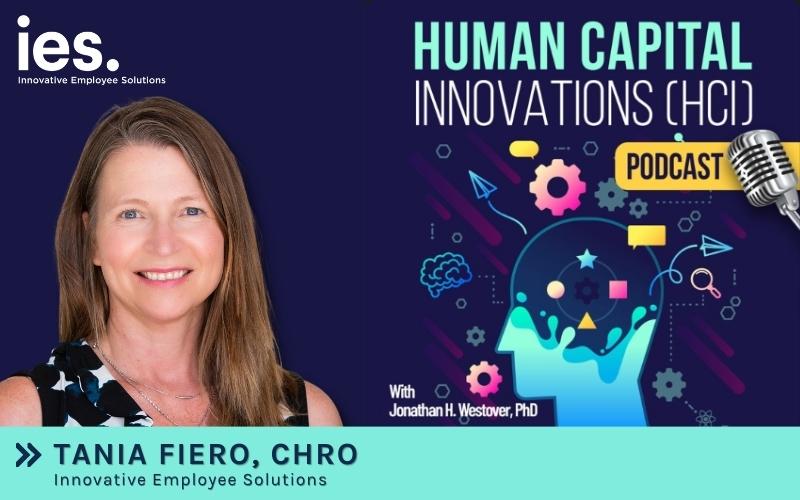Business

Compensation is a key consideration for most job seekers, but it can be challenging for organizations to compete in that area. If you simply meet the market when it comes to salary, your pay might not appear competitive to top talent. Read our latest article for SHRM to learn strategies for reassessing and communicating your…
Read the full story
Inside the American Rescue Plan Act is a tax change set to impact the gig economy in a huge way. Though originally set to begin for the 2022 tax year, the IRS granted gig workers a 12-month reprieve. Come tax season 2024, however, the proposed change will lower the reporting threshold for taxpayers issued a…
Read the full story
When looking for help with employment and compliance tasks for remote or contingent workers, businesses don’t always know what an employer of record provider can do for them. It’s not just payroll processing - an employer of record (EOR) can help in many more ways. And it’s especially useful for expanding businesses or those needing…
Read the full story
If you’ve traditionally employed full-time employees, you might have some questions about the different types of work arrangements that have gained momentum over the past few years. With the rise of the internet and tech companies that have enabled the gig economy, more workers are eschewing full-time employment for the flexibility of less permanent working…
Read the full story
The Great Resignation is still impacting businesses. In October alone, 4 million workers left their jobs. Adding insult to injury is a new phenomenon sweeping workplaces across the U.S.: quiet quitting. Gallup believes quiet quitters make up at least 50% of the U.S. workforce, and employers are feeling the strain. Worker productivity dropped significantly in…
Read the full story
HR leaders are looking for creative solutions to mitigate labor shortages. A great place to start is with retired workers. Regardless of their specific personal motivations for rejoining the workforce, this “unretired” demographic is a godsend to businesses in need of talented and experienced employees. Read the full article in theHRDIRECTOR.com here. This…
Read the full story
What was once commonly known as "payrolling" is now more commonly known as an "employer of record", or EOR. EORs started when companies decided to experiment with the idea of outsourcing the administrative burden of employment for contract workers so that they could engage employees faster and compliantly throughout the United States. This service is…
Read the full story
Although similar on the surface, professional employer organizations (or PEOs) and employers of record (or EORs) operate under vastly different business models — and the biggest difference between PEOs and EORs can be summed up in two words: partner status. PEOs serve as your co-employer partner, whereas EORs serve as the legal employer of your dispersed workforce. Both…
Read the full story
On today’s episode of the Human Capital Innovations (HCI) Podcast, Jonathan H. Westover speaks to Tania Fiero from Innovative Employee Solutions (IES) about addressing workforce gaps using contingent workers. Tune in for the full conversation on Human Capital Innovations (HCI) Podcast with Jonathan H. Westover. Interview with: Tania Fiero, Chief Human Resources Officer…
Read the full story
Although remote work once seemed like a temporary fix during the pandemic, it’s evident that it’s here to stay. While remote and hybrid offices were taking hold of the workforce, companies also began engaging more contingent and freelance workers. In a recent survey, large corporations in the U.S. said that 28% of their workforces were…
Read the full story


